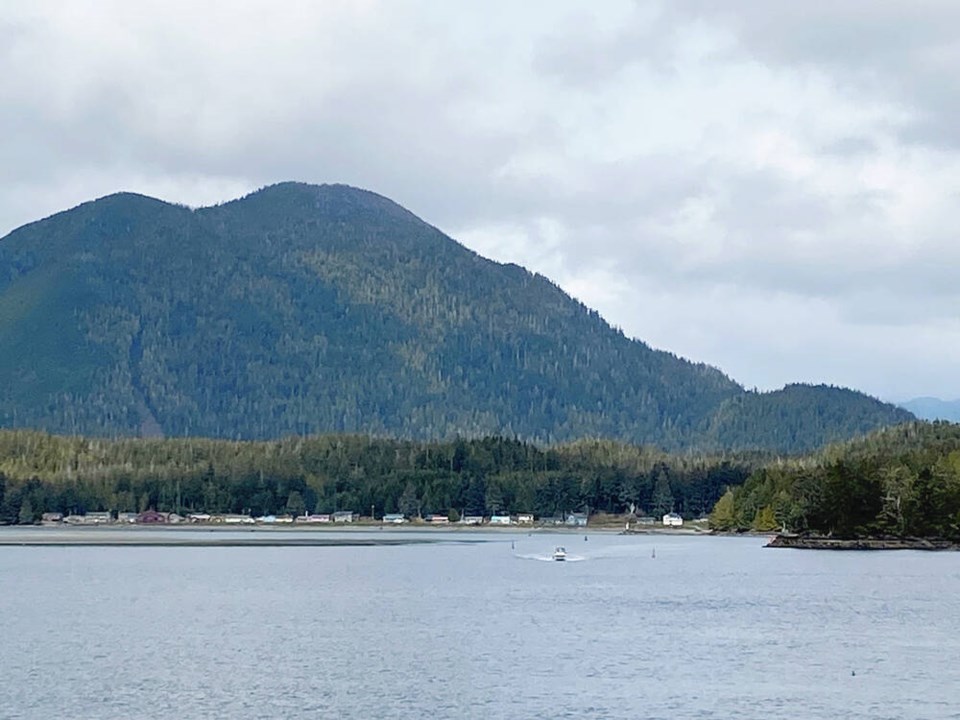Tofino Coun. Kat Thomas woke to light rain on Wednesday morning — a good sign for her parched community.
More is expected to fall on Sunday, but nobody’s letting their guards down in Tofino, which is already under strict Stage 3 water restrictions and facing a potential state of emergency that could force some businesses and resorts to close.
“Our reservoirs are at their lowest levels of 2023 right now,” Thomas said in an interview.
She said municipal crews are diverting water to the reservoirs that need it the most and the town is relying on the community to continue conservation measures.
Tofino is calling the prolonged drought “historic” due to low flows in Meares Island creeks that supply the town with water via submarine pipeline. Typically, the resort community receives 424 millimetres of rain from May to September, but this year, less than 100 mm has fallen.
“It’s obviously a concern,” said Thomas. “We’re getting some rain but it’s not nearly enough to [fill] our reservoirs.”
She said residents and business owners are taking the water crisis seriously, and it’s started to show.
Tofino Mayor Dan Law told residents at a packed town hall meeting in July that the community was “subsisting on fog and dew.”
From May to July 19, Tofino saw just 19 mm of rain — a fraction of the average of 249 mm for the period.
Thomas said since then, the community has reduced water consumption from 2,400 cubic metres a day to about 1,800.
“That’s significant, but we have to continue conserving water,” she said.
The province has declared all of Vancouver Island at drought Level 5, the highest level.
Stage 3 restrictions prohibit all outdoor use of water, including outdoor showers, pool or hot tub fill-ups and watering of lawns and gardens, as part of an effort to ensure water reservoirs outlast the drought.
Tofino urged its residents this week to continue decreasing water consumption because the next stage of conservation would have “a significant impact on businesses and potentially trigger a local state of emergency.”
Short-term rental operators and resorts and hotels are required to remove unnecessary linens such as bathrobes and extra towels, remove bathtub stoppers to discourage tub use, encourage guests to bring their own bedding and towels, provide disposable cutlery and provide bottled water.
They are also asked to close guest access to laundries and dishwashers, do only spot mopping and cleaning and limit laundry service to guest changeovers or urgent sanitation needs.
Food and beverage providers are asked to consider using portable toilets, use eco-friendly disposable dishes and cutlery and order ice from other communities.
Residents are encouraged to check for leaks, have shorter showers and run only full loads of laundry and dishes.
Aaron Rodgers, director of infrastructure and public works for Tofino, said Stage 3 in Tofino is “akin to a tsunami siren.
“The siren is going but we have some time to work on conservation to avoid an impact to our community,” he said. “We can’t control the weather or the creeks … the only thing we can control is use of water.”
Bylaw officers are going door-to-door to remind residents, resorts and short-term vacation rentals of the serious threat to the town’s water supply.
Last year, Tofino council authorized staff to develop a water master plan for infrastructure improvements over the next two decades. The plan is expected to address summer population growth, changing climate, and renewal of water system infrastructure.
That report is expected to be complete by the first quarter of next year.
>>> To comment on this article, write a letter to the editor: [email protected]



